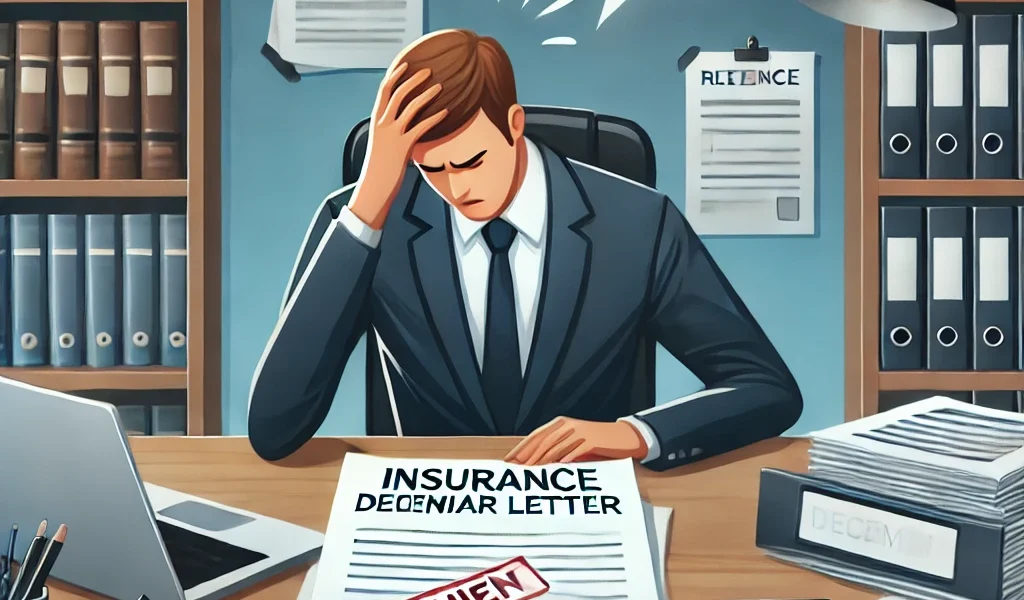Introduction
Insurance claims can sometimes be denied due to various reasons, leaving policyholders frustrated and financially burdened. However, a denied claim doesn’t necessarily mean the end of the road. If you believe your claim was unfairly rejected, you have the right to dispute it. In this guide, we will walk you through the necessary steps to successfully challenge a denied insurance claim and increase your chances of receiving the compensation you deserve.
Common Reasons for Insurance Claim Denials
Before disputing a denied claim, it is essential to understand why claims get rejected. Here are some of the most common reasons:
- Lack of Coverage – The insurance policy does not cover the specific claim.
- Missed Deadlines – Failure to file the claim within the policy’s time limits.
- Incomplete or Incorrect Documentation – Missing necessary paperwork or errors in submission.
- Policy Exclusions – Certain damages or incidents may be excluded from coverage.
- Pre-existing Conditions – The insurer believes the damage or injury existed before the policy was active.
- Failure to Pay Premiums – If the policy was inactive due to non-payment, claims could be denied.
- Disputes Over Liability – The insurer may argue that you were at fault or responsible for the damages.
By identifying the exact reason for denial, you can prepare a strong dispute with the correct supporting documents.
Steps to Dispute a Denied Insurance Claim
1. Review Your Insurance Policy Thoroughly
Why It’s Important: Understanding the terms and conditions of your policy helps determine whether the denial was justified.
Steps to Take:
- Obtain a copy of your policy and read through the coverage details.
- Look for any clauses related to your specific claim.
- Check for exclusions, deadlines, and specific requirements.
2. Analyze the Denial Letter
Why It’s Important: The denial letter contains the official reason for rejection, which is crucial in forming your dispute.
Steps to Take:
- Read the insurer’s explanation carefully.
- Note any missing documentation or policy clauses cited as reasons for denial.
- Compare the insurer’s reasoning with your policy’s actual terms.
3. Gather Supporting Evidence
Why It’s Important: Strong evidence increases your chances of overturning the denial.
Steps to Take:
- Collect all necessary documents, receipts, photos, and witness statements.
- Obtain additional medical reports (if applicable) or expert evaluations.
- Gather communication records between you and the insurer.
4. Contact Your Insurance Company for Clarification
Why It’s Important: Sometimes, simple misunderstandings or missing information can be resolved without a formal dispute.
Steps to Take:
- Call or email your insurer to discuss the denial.
- Request clarification on what additional information they need.
- Keep records of all conversations, including the name of the representative and the date of communication.
5. Submit a Formal Appeal
Why It’s Important: If informal discussions do not resolve the issue, you need to submit a formal dispute.
Steps to Take:
- Write a formal appeal letter addressing the denial.
- Clearly state why you believe the claim should be approved.
- Attach all supporting documents and reference specific policy terms.
- Send the appeal via certified mail or through the insurer’s official dispute channel.
6. Request an Independent Review or Mediation
Why It’s Important: If the insurer remains firm on the denial, external intervention may be necessary.
Steps to Take:
- Request an independent review by a third-party arbitrator or claims examiner.
- Consider mediation, where a neutral party helps resolve the dispute.
- Check if your state insurance department offers free claim dispute assistance.
7. File a Complaint with the Insurance Regulatory Authority
Why It’s Important: If all else fails, filing a formal complaint can pressure the insurer to reconsider.
Steps to Take:
- Contact your state’s insurance commission or regulatory agency.
- Provide a detailed explanation of your case with supporting documents.
- Follow up on the complaint status regularly.
8. Seek Legal Help if Necessary
Why It’s Important: If your claim is substantial and you are facing unfair treatment, legal intervention may be required.
Steps to Take:
- Consult with an attorney specializing in insurance disputes.
- Discuss the possibility of filing a lawsuit if warranted.
- Weigh the cost-benefit of legal action versus the amount claimed.
Tips for Strengthening Your Insurance Claim Appeal
- Stay Organized – Keep all documents, records, and correspondence well-organized.
- Be Persistent – Follow up regularly and do not accept an unfair denial easily.
- Remain Professional – Maintain a respectful and factual tone in all communications.
- Use Legal Terminology When Necessary – Referencing legal terms and consumer rights can make your case stronger.
- Seek Expert Opinions – Third-party experts (such as doctors, mechanics, or adjusters) can provide credible evidence.
Conclusion
Disputing a denied insurance claim requires persistence, organization, and a strong understanding of your policy. By following the steps outlined above, you can improve your chances of reversing the denial and getting the compensation you deserve. If necessary, escalate the issue through regulatory authorities or seek legal assistance. Remember, insurance companies are not infallible, and policyholders have the right to challenge unfair claim denials.
Stay proactive, and don’t hesitate to fight for what you’re entitled to!




